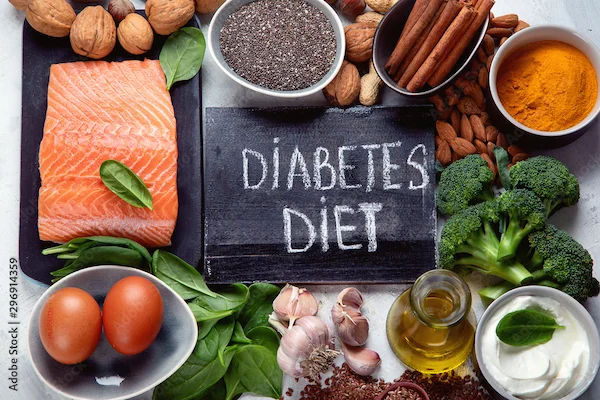Pericardial Effusion Overview and Management
Learn about pericardial effusion, including its causes, symptoms, and management strategies. Understand how fluid buildup around the heart can affect cardiac function and the importance of timely treatment.

Written by Dr. Rohinipriyanka Pondugula
Reviewed by Dr. Md Yusuf Shareef MBBS
Last updated on 22nd Aug, 2025

If you or a loved one has been diagnosed with pericardial effusion, you might have questions about what it means, how it affects your health, and what can be done to manage it. This article will help you understand the condition in simple terms and provide practical advice on managing it.
What Is Pericardial Effusion?
The heart is surrounded by a thin, double-layered sac called the pericardium. Normally, there is a small amount of fluid between these layers to help the heart move smoothly. However, when too much fluid builds up in this space, it is called pericardial effusion.
This extra fluid can put pressure on the heart, making it harder for it to pump blood effectively. In severe cases, it can lead to a life-threatening condition called cardiac tamponade, where the heart cannot function properly due to excessive pressure.
Consult a Top Cardiologist
Symptoms of Pericardial Effusion
Some people with pericardial effusion may not have any symptoms, especially if the fluid buildup is small or happens slowly. However, when symptoms do occur, they may include:
Chest pain (often sharp and worsens with deep breaths or lying down)
Shortness of breath (especially when lying flat)
Fatigue or weakness
Swelling in the legs or abdomen
Palpitations (feeling like your heart is racing or skipping beats)
Lightheadedness or fainting
If you experience sudden, severe chest pain, difficulty breathing, or fainting, seek emergency medical help immediately, as these could be signs of cardiac tamponade.
What Causes Pericardial Effusion?
Several conditions can lead to fluid buildup around the heart. Some common causes include:
1. Infections – Viral, bacterial, or fungal infections (like tuberculosis) can inflame the pericardium.
2. Inflammatory Diseases – Conditions like lupus or rheumatoid arthritis can cause pericardial inflammation.
3. Cancer – Lung, breast, or lymphoma can spread to the pericardium.
4. Heart Attack or Heart Surgery – These can sometimes trigger fluid accumulation.
5. Kidney Failure – Poor kidney function can lead to fluid retention, including around the heart.
6. Trauma or Injury – A chest injury can cause bleeding into the pericardial space.
7. Certain Medications – Some drugs (like hydralazine or chemotherapy) may contribute to effusion.
How Is Pericardial Effusion Diagnosed?
If your doctor suspects pericardial effusion, they may recommend the following tests:
Echocardiogram (Heart Ultrasound) – The most common test to see fluid around the heart.
Electrocardiogram (ECG) – Checks for abnormal heart rhythms.
Chest X-ray – May show an enlarged heart silhouette.
CT or MRI Scan – Provides detailed images if more information is needed.
Pericardiocentesis – A procedure where a needle is used to drain fluid for testing (if needed).
How Is Pericardial Effusion Treated?
Treatment depends on the cause and severity of the effusion.
1. Medications
Anti-inflammatory drugs (like ibuprofen or colchicine) – Help reduce inflammation if the cause is infection or autoimmune disease.
Diuretics ("water pills") – May be used if fluid retention is due to heart or kidney problems.
Antibiotics or Antivirals – If an infection is the cause.
2. Draining the Fluid (Pericardiocentesis)
If the effusion is large and causing symptoms, doctors may remove the excess fluid using a needle or a small tube (catheter). This provides quick relief and helps diagnose the underlying cause.
3. Surgery (Pericardial Window or Pericardiectomy)
In severe or recurring cases, a surgeon may create a small opening in the pericardium to allow fluid to drain (pericardial window) or remove part of the pericardium (pericardiectomy).
Lifestyle and Self-Care Tips
While medical treatment is essential, some lifestyle changes can help manage pericardial effusion and prevent complications:
Follow Your Doctor’s Advice – Take prescribed medications and attend follow-up appointments.
Monitor Symptoms – Keep track of any new or worsening symptoms like chest pain or breathing difficulties.
Limit Salt Intake – Excess salt can worsen fluid retention.
Stay Active (Within Limits) – Gentle exercise (like walking) is good, but avoid strenuous activities if advised.
Manage Stress – Stress can worsen heart-related symptoms; relaxation techniques like deep breathing may help.
When to Seek Help
Call your doctor or go to the emergency room if you experience:
Severe chest pain
Difficulty breathing
Fainting or extreme dizziness
Rapid or irregular heartbeat
If you need expert advice or tests, you can book a consultation with a cardiologist or schedule an echocardiogram through Apollo 24|7 for quick and reliable care.
Conclusion
Pericardial effusion can be concerning, but with the right diagnosis and treatment, many people recover well. If you suspect you have symptoms, don’t hesitate to consult a doctor. Early detection and proper care can prevent complications and improve your quality of life.
Consult a Top Cardiologist
Consult a Top Cardiologist

Dr. Anand Ravi
General Physician
2 Years • MBBS
Bengaluru
PRESTIGE SHANTHINIKETAN - SOCIETY CLINIC, Bengaluru

Dr. Tripti Deb
Cardiologist
40 Years • MBBS, MD, DM, FACC, FESC
Hyderabad
Apollo Hospitals Jubilee Hills, Hyderabad

Dr. Zulkarnain
General Physician
2 Years • MBBS, PGDM, FFM
Bengaluru
PRESTIGE SHANTHINIKETAN - SOCIETY CLINIC, Bengaluru

Dr Nazneen Khan
Cardiologist
7 Years • M.B.B.S, M.D (MEDICINE), DrNB CARDIOLOGY
Pune
Apollo Clinic, Viman Nagar, Pune

Dr. Janjirala Seshivardhan
Cardiologist
7 Years • MBBS,DNB(GM),DM(Cardiology)
Manikonda Jagir
Apollo Clinic, Manikonda, Manikonda Jagir




